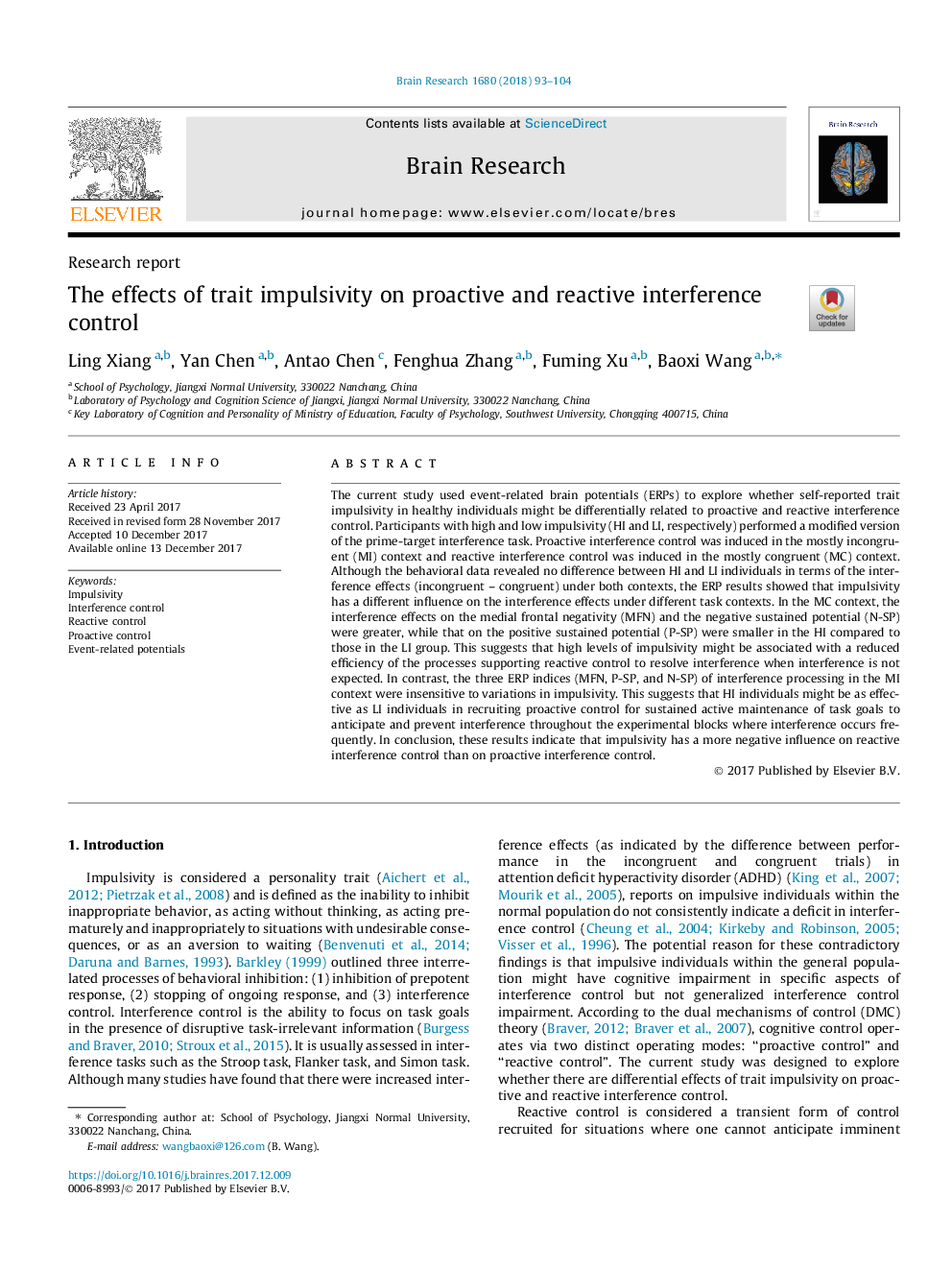ترجمه فارسی عنوان مقاله
اثرات تکانشگری صفات بر کنترل تداخل پیشگیرانه و واکنشی
عنوان انگلیسی
The effects of trait impulsivity on proactive and reactive interference control
| کد مقاله | سال انتشار | تعداد صفحات مقاله انگلیسی |
|---|---|---|
| 122220 | 2018 | 12 صفحه PDF |
منبع

Publisher : Elsevier - Science Direct (الزویر - ساینس دایرکت)
Journal : Brain Research, Volume 1680, 1 February 2018, Pages 93-104
ترجمه کلمات کلیدی
تکانشی، کنترل تداخل، کنترل واکنش پذیر، کنترل پیشگیرانه، پتانسیل مربوط به رویداد،
کلمات کلیدی انگلیسی
Impulsivity; Interference control; Reactive control; Proactive control; Event-related potentials;

